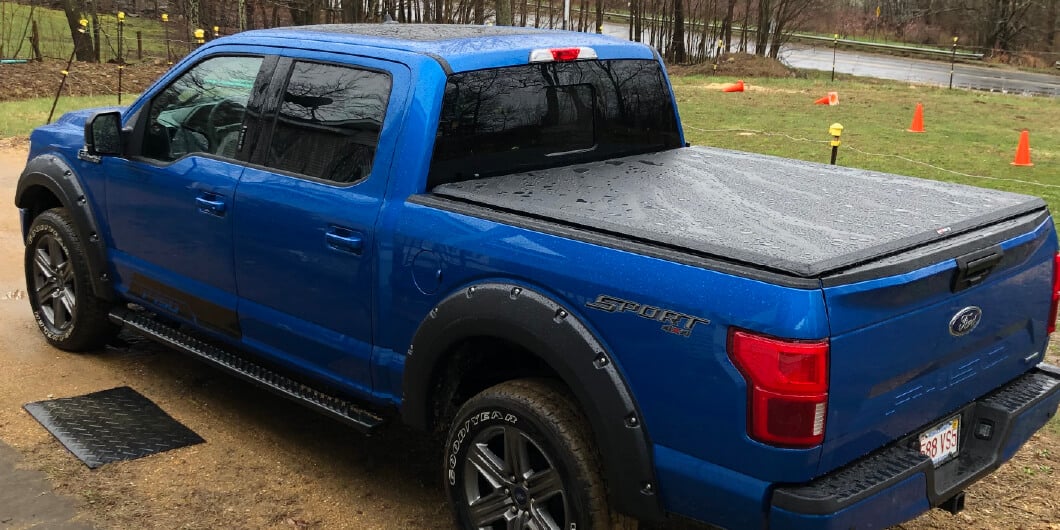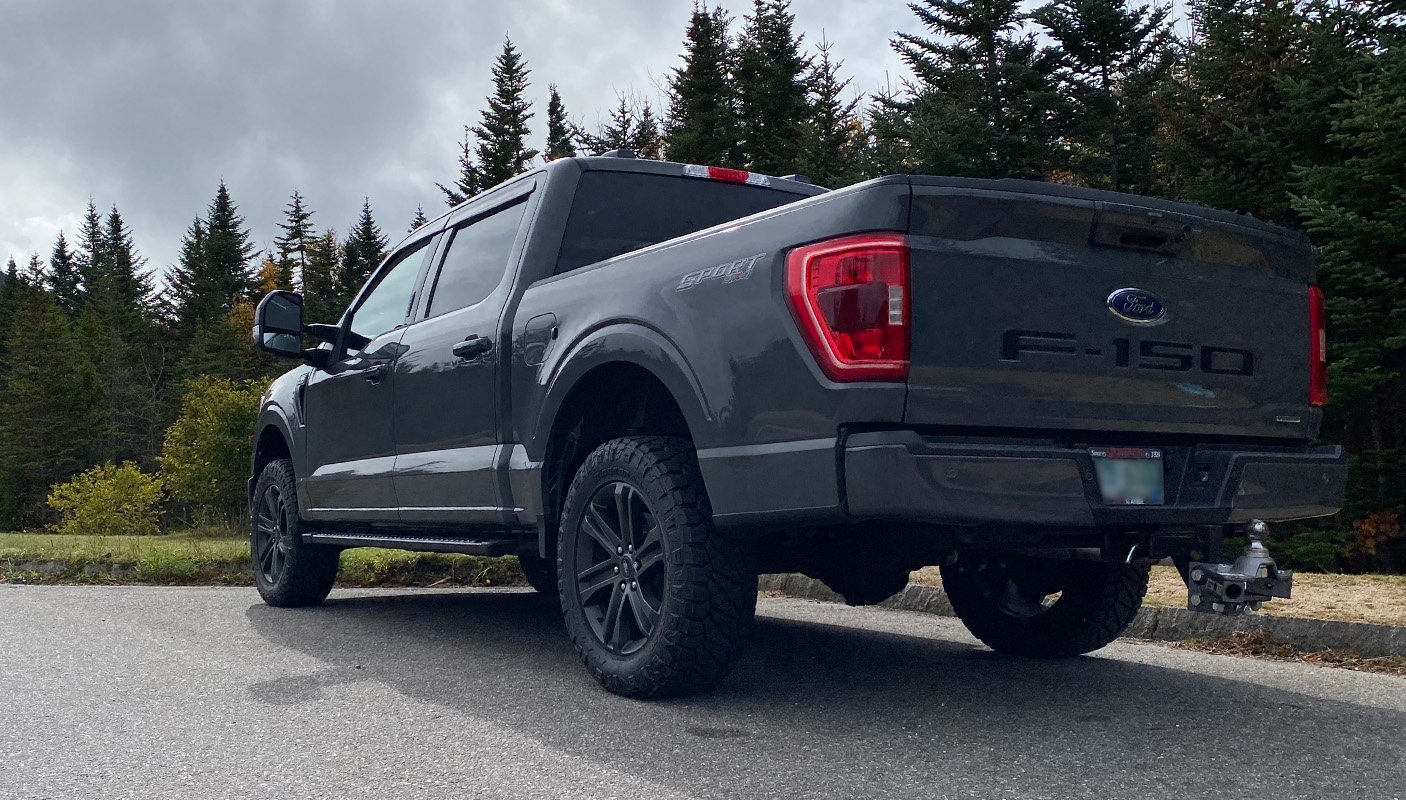How Do Tonneau Covers Affect Truck MPG?
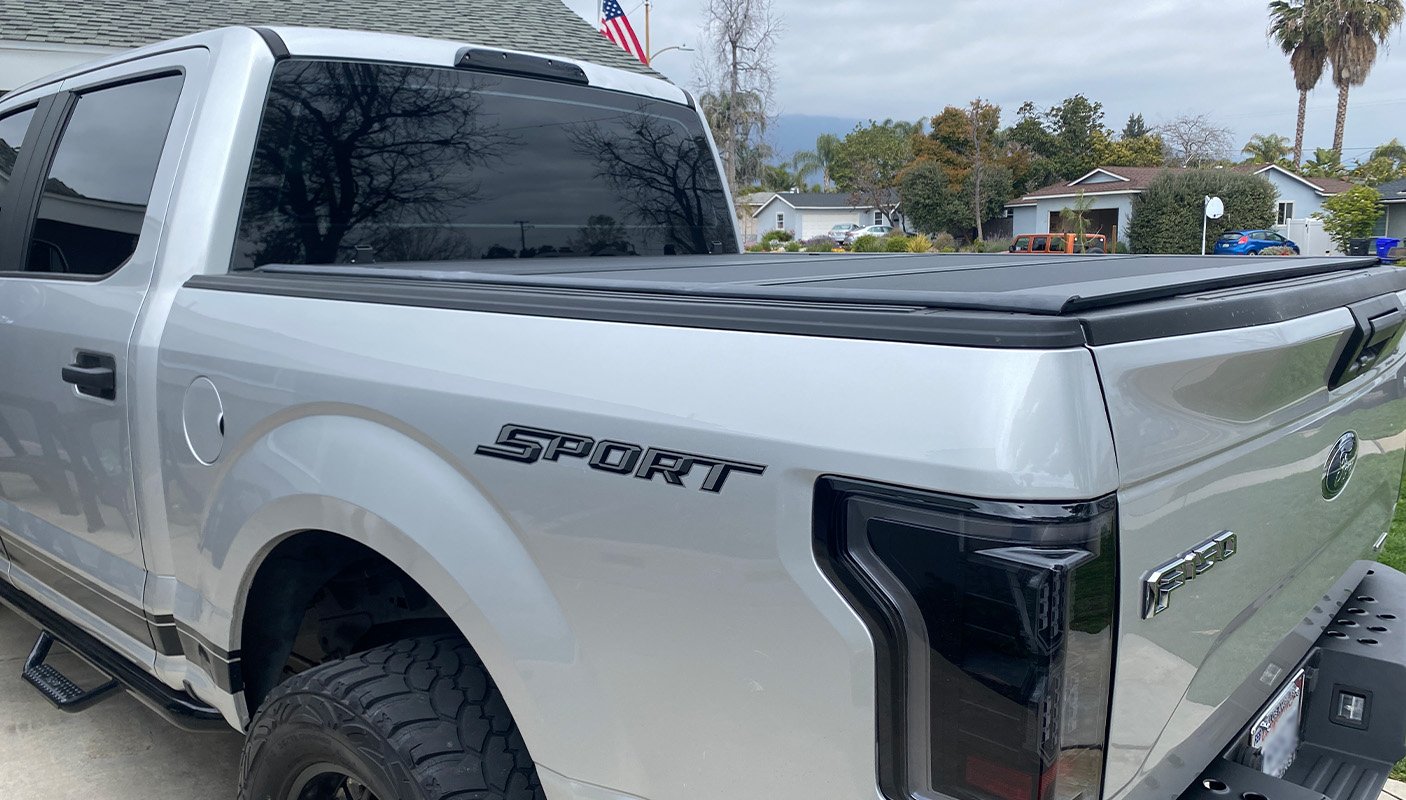
Generally speaking, tonneau covers can reduce drag—but the same isn't always true about fuel consumption. There's no simple answer to the question of whether tonneau covers improve gas mileage because there are a handful of factors that affect the equation.
Pickup Truck Aerodynamics and Drag
The theory behind the tonneau cover gas mileage equation is pretty simple—you're probably already picturing them stopping wind from getting caught up in your tailgate. Tonneau covers do improve aerodynamics to some extent, cutting down on drag.
That's why they improved fuel efficiency in some of the test scenarios above. It's also why removing the tailgate and replacing it with mesh also helped.
Bed Size and Tonneau Cover Weight
Here's MPG 101: The heavier your truck, the harder your engine works; the harder your engine works, the worse your fuel efficiency. In fact, the U.S. Department of Energy (USDE) claims that every additional 100 pounds of weight can translate to a 1% drop in fuel efficiency.
If you opt for a long box, for example, you increase the overall weight of your truck. Cap that bigger bed with a long, heavy tonneau cover on top, an—in comparison to a short bed with no cover—you could be adding a few hundred pounds to tow around even with your bed empty.<
Driving Speed and Acceleration
Acceleration and higher driving speeds also translate to lower fuel efficiency: The USDE notes that the threshold varies by vehicle, but generally, it drops significantly the faster you go above 50 mph.
However, the SEMA study above found that drag improvements from tonneau covers generally increased as driving speed went up. Not enough of an increase to offset the efficiency you can gain by driving the speed limit, but still helpful.
Truck Age, Condition, and Maintenance
At the end of the day, all these factors still can't account for one wild card: the condition of your specific truck. A brand-new ride with top-shelf fluids and perfectly inflated tires will get better mileage than a comparable one that's a decade old with balding tires and a shaky oil change history.
How a Tonneau Cover Helps Save Fuel
Your truck bed acts like a parachute when you are driving down the road and it can trap air, making it more difficult for the engine to pull the vehicle along without using more fuel. A tonneau cover eliminates this parachute effect while also protecting the bed as well as the components underneath it. This saves you money on fuel as well as exterior repairs in the long run.
Some of the ways tonneau covers improve fuel efficiency and save you money include:
- Reduced Drag - The most important way that a tonneau cover saves you money is its ability to reduce the drag created by your truck’s body. Since the cover eliminates the large air pocket created by the bed, it is easier for your truck to move through the air. This puts less strain on the engine, which will not only save fuel but also help with the longevity of the powertrain’s components.
- Fuel Savings - When automakers design cars, aerodynamics are an important consideration and millions of dollars are spent ensuring that a vehicle design can move through the air with ease. With pickup trucks, though, payload capacity and power are a bigger priority than fuel efficiency, so aerodynamics are not usually as big of a factor in the design. A tonneau cover can help offset some of the fuel consumption that the design of a truck permits and save you quite a bit of money in the long run.
- Component Protection - Some of the most important components of your pickup truck are located underneath the bed. If rain, hail, or other weather elements are allowed to deteriorate the bed, those essential parts can be damaged as well. Things like the differential and driveshaft can be incredibly expensive to replace but a tonneau cover can protect them and ensure that you don’t have to spend a fortune fixing your truck’s damaged rear end.
Types of Tonneau Covers and Their Drag Reduction
Different types of tonneau covers will have different levels of drag reduction. Depending on your needs and how important fuel efficiency is to you, one type may be better for you than another. Knowing how much drag reduction you can expect from each type of tonneau cover will help you choose the right one for your needs.
Hard Covers
Hard tonneau covers offer the best drag reduction due to their rigid design and tight seal around the bed. Since there is no way for air to get underneath the cover, it will simply slip around it. If you are looking for the best possible protection and the best fuel efficiency, this will be a great option.
Soft Covers
A soft tonneau cover made of fabric or canvas will offer less drag reduction than a hard cover. However, it can still help keep air out of the bed, which will be a big help in enhancing the aerodynamics of your truck. As long as the cover is taut over the bed, it can help reduce drag and improve fuel efficiency.
Retractable Covers
Retractable covers are very similar to soft tonneau covers except for the fact that they can be pulled back easily. They offer roughly the same amount of drag reduction as a soft cover but may not be as taut.
Other Benefits of Tonneau Covers
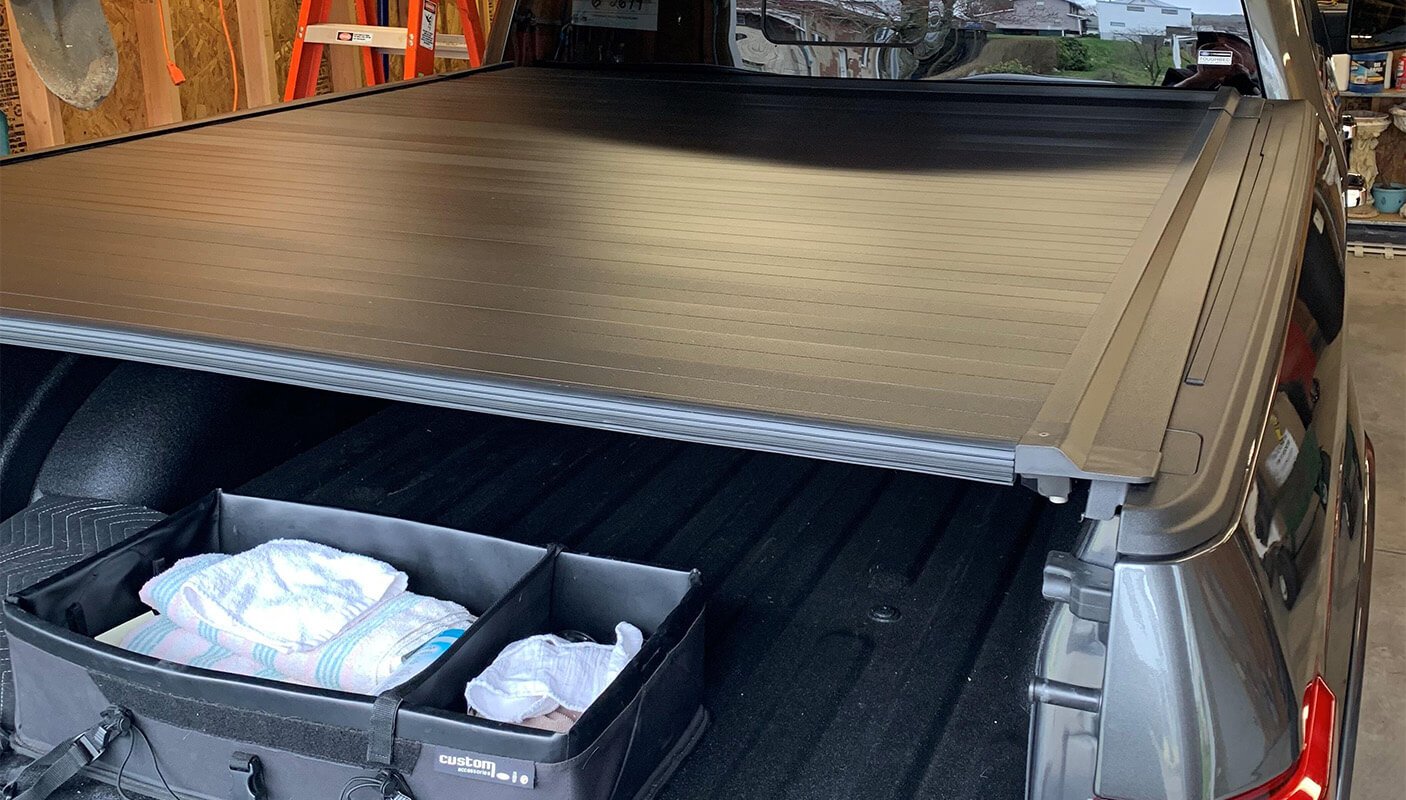
Let's say you drive an electric F-150 and aren't that concerned about saving gas—tonneau covers still bring a bedload of other benefits like security and storage.
- Organization: Turn your bed into an enclosed storage compartment for your tools, gear, and accessories.
- Storage protection: Keep the rain, sleet, snow, and dust off your stuff.
- Bed protection: Maintain your bed and liner by blocking out the elements.
- Security: Lock your cover up to keep your valuables safe while you're on the road.
- Appearance: Give your bed a sleek, finished look with a cover designed to match your model and paint color.
- Resale value: When it comes time to resell, a quality tonneau cover will make your truck more attractive to potential buyers.
How To Get Better Gas Mileage in a Truck
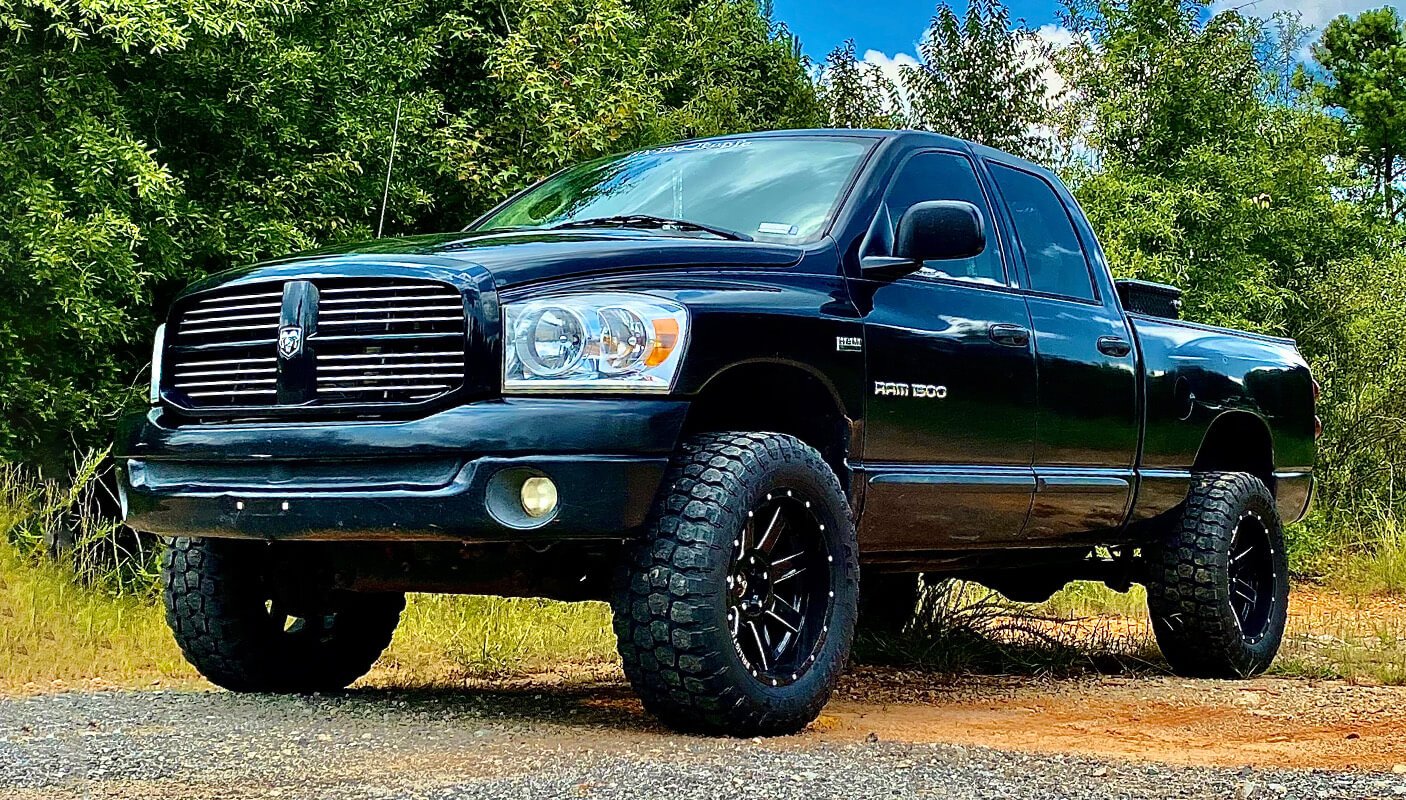
Tonneau covers may be able to bump your gas mileage up a bit in some circumstances, but if you really want to take your efficiency to the next level, consider some of these gas-saving tips.
- Ensure fitment: If you decide to use one, make sure your tonneau cover fits properly by measuring your truck bed first.
- Slow down: No surprise here—Consumer Reports considers this the best way to save fuel, calculating that you can save as much as 7 mpg by going 65 instead of 75.
- Accelerate/brake wisely: Accelerating and hard braking are mpg killers. Pay attention to your surroundings so you can speed up and slow down gradually.
- Use cruise control: If you've got a lead foot, cruise control can keep you from speeding and hitting the brakes.
- Cut the extra weight: Lighten the load on your engine by lightening the load in your bed. If you're towing around heavy tools and accessories you don't need, move them to the shed for an instant mpg boost.
- Maintain tire pressure: According to a USDE report, you can boost your efficiency by up to 3% by maintaining proper tire pressure.
- Mind your manual: Always abide by factory recommendations when it comes to oil type and other maintenance components. Going off the book could hurt your truck's performance.
- Keep up with maintenance: A healthy truck is an efficient truck. Don't get lax on your maintenance schedule if you want maximum fuel economy.
Final Verdict: Do Tonneau Covers Save Gas?

At the end of the day, do tonneau covers save gas? Based on independent studies from “MythBusters,” SEMA, and Consumer Reports, yes—in some cases.
Here's a summary of the research findings:
- At best, tonneau covers improve gas mileage by under 2%
- Gas-saving benefits increase at higher driving speeds
- The best-performing tonneau cover types are fiberglass and vinyl
- Heavier options may offset any gains in fuel efficiency
If you're purely looking for gas savings, tonneau covers might be able to help a bit. But there are plenty of other reasons to install one, and plenty more tactics for improving your mileage. You can't go wrong by adding a cover or other bed accessories to your truck.
How Much Money Can a Tonneau Cover Save You?
While the actual amount of money you can save with a tonneau cover will vary from situation to situation, there have been tests regarding the fuel savings you can expect. For the most part, a tonneau cover will offer a fuel cost reduction of five to ten percent. While this may not seem like much, it can end up saving you hundreds of dollars annually on top of the protection you get for the components under the bed.
If you want to save money on fuel and protect your truck, AmericanTrucks has the selection you need. Whether you want a hard cover or soft cover, our wide selection of high-quality products from trusted brands will help you improve your pickup’s aerodynamics and save you cash in the process.
*Cost calculation of $52.87 was calculated based on Federal Highway Administration estimates for average miles driven per year, AAA estimates for the national average cost of gasoline per gallon, and FuelEconomy.gov estimates for the average mpg of the F-150 with a base 3.3-liter V6 engine.
More Pickup Guides:

